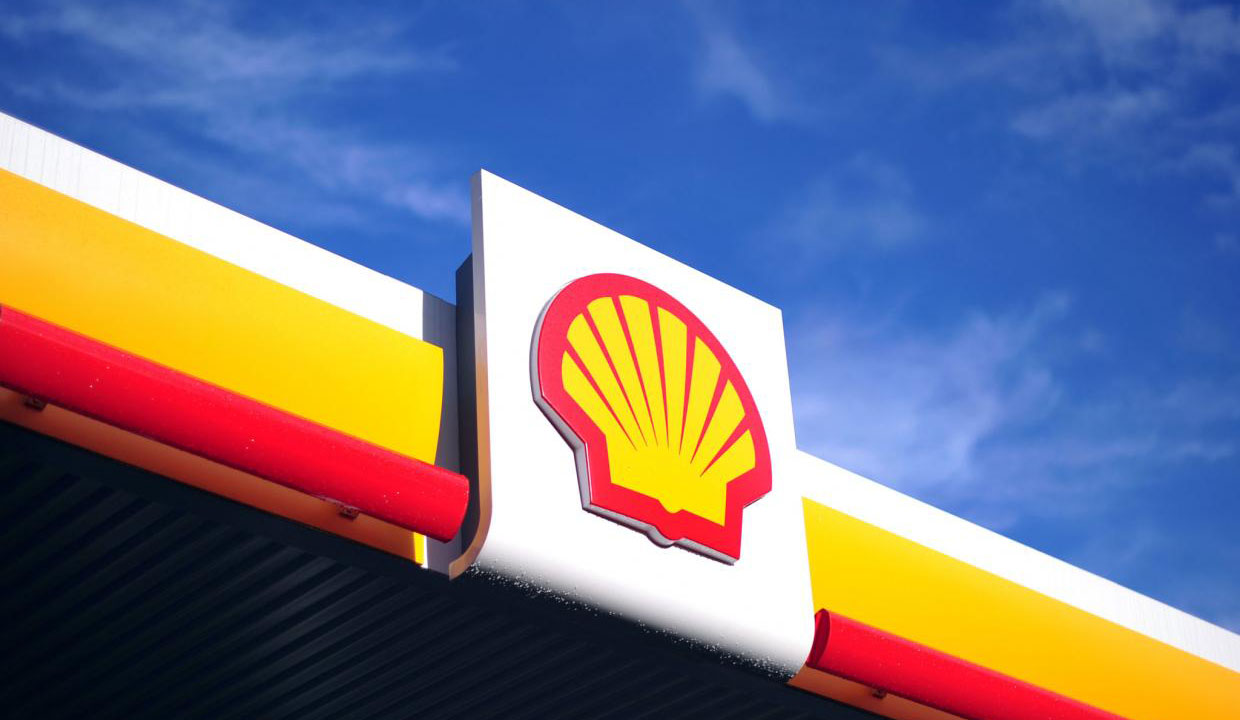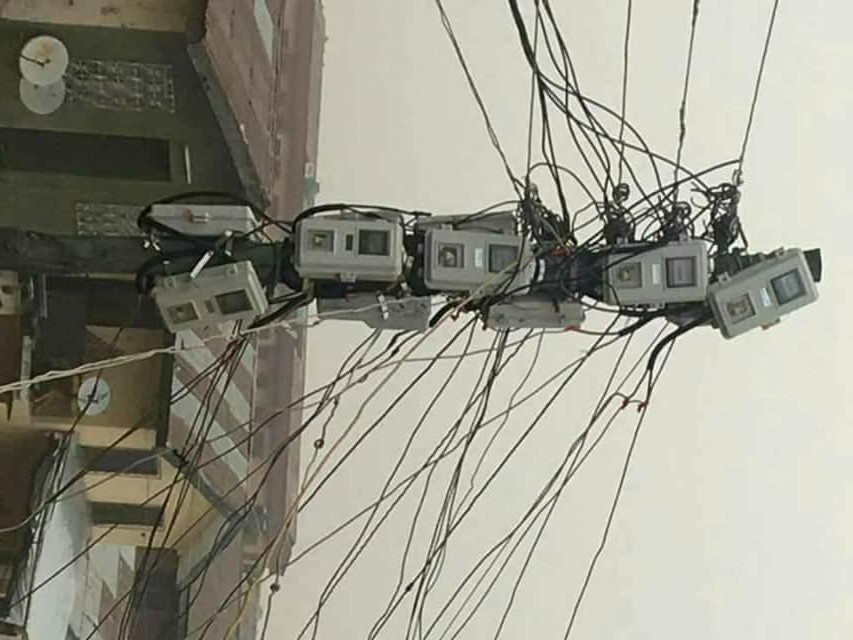Shell cannot be allowed to divest from the onshore oil industry in the Niger Delta before it takes responsibility for its toxic legacy of pollution and the safe decommissioning of abandoned oil infrastructure, says SOMO (Centre for Research on Multinational Corporations) in a new report released on Monday.
The oil giant is leaving behind petroleum-contaminated rivers and streams and large areas of polluted land that have devastated the lives and livelihoods of millions of people living in the Niger Delta. Shell claims it cleans up, but the report Selling Out Nigeria –Shell’s irresponsible divestment shows how historical pollution remains a serious issue and how Shell is trying to avoid responsibility for this despite the billions of dollars it has earned from the oil. The certification process Shell uses to claim it has cleaned up oil spill sites is ‘deeply flawed and cannot be relied upon’.
While Shell has long maintained that theft of oil and interference with pipelines are the causes of much of the oil pollution –claims that are strongly contested –this has no bearing on its responsibility to clean up. Under Nigerian law, Shell must clean up oil spills no matter the cause. It has failed to do so.
The toxic legacy of oil pollution is bad enough, but the situation is likely to worsen in the years to come with a massive unpaid bill for safely decommissioning old and dilapidated oil infrastructure.
Shell’s “ultimate Houdini act”
Scattered across the landscape of the Niger Delta are abandoned pipelines, well heads and other oil infrastructure that are a disaster waiting to happen. All of Nigeria’s oil infrastructure will ultimately have to be safely decommissioned, but the investigation by SOMO shows that Shell has divested to many newly created companies that do not appear to have the funds or willingness to do this.
There is a massive transparency gap around the issue of funding for decommissioning. Nigeria has legal requirements for companies to set aside funds for decommissioning, but there is no means to establish how much funding companies have –or have not –set aside. Available indicators are worrying –researchers could not find any confirmation that Shell has set up a fund or funds to cover the decommissioning of the oil mining leases (OMLs) it has sold.
“Shell has pulled off the ultimate Houdini act,” says Audrey Gaughran, Executive Director of SOMO. “As the oil industry enters its final phase, whether that’s in the next 5 years or 25, Shell has sold its toxic assets and will not be left holding them when the music stops. Shell has profited from oil extraction for decades, and in doing so, has made the Niger Delta one of the most oil-polluted places on earth, leaving communities to face the dire consequences that will remain well beyond the lifetime of the industry.”
Shell is not the only international oil company exiting the onshore Niger Delta. All of the European and US oil majors are also leaving. However, the departure of Shell, which has been the dominant operator with the largest footprint in the region for decades, impacts significant areas of the Delta and thousands of communities.
Gaughran states: “Shell must not be allowed to simply walk away from this most emblematic of unjust energy transition cases. Ensuring that the historical pollution, the lack of funding for safe decommissioning and poor financial transparency are fully addressed in Nigeria will be an important litmus test for a just energy transition across the world.”
A complex maze of investors and buyers
Despite claiming to divest responsibly and claiming it conducted due diligence on the new buyers (most of which are Nigerian oil companies), the report exposes how Shell has sold to newly created companies that have –in some cases –little real substance, opaque backgrounds or involve complex groups of domestic and foreign investors.
“We found that some of the new companies appear to be crude investment exercises, backed by investors who appear to have no interest in the situation of the Niger Delta and only in making as much money as possible while they can,” explains Audrey Gaughran.
Some of the companies that bought the oil assets seem to have set themselves up to extract Nigeria’s last remaining oil wealth and are likely to simply fade away when oil ceases to be profitable.
SOMO also found that while Shell has offloaded its problem assets, it is still involved financially in some of the new operations. Shell has loaned funds to several of the new companies or will buy the oil they produce.
The links are not only financial. In announcing the sale of its wholly-owned Nigerian subsidiary, the Shell Petroleum Development Company (SPDC), Shell has said it will retain a role in supporting the management of SPDC Joint Venture facilities that supply a major portion of the feed gas to Nigeria LNG (NLNG). Shell holds a 25.6 per cent interest in NLNG.
Gaughran concludes: “Oil infrastructure covers vast areas of the Niger Delta and runs through the homes and farms of thousands of communities. They are living inside a decomposing, rotting web of oil pipelines and cannot escape. The anger and the fear are palpable. Shell cannot simply wash its hands of the massive legacy of pollution and pass on the costs and risk to the new buyers and the communities of the Delta.”
New principles for responsible oil and gas divestment
In response to the growing concerns about how international oil companies are divesting from the onshore Niger Delta, civil society organisations in the region, including Stakeholder Democracy Network(SDN), have formulated new principles for responsible oil and gas industry divestment, which they hope the Nigerian Government will adopt and implement.
Florence Kayemba, Country Director at SDN, says: “The international oil companies are divesting at an accelerated rate –and the report highlights that the process is inadequate. There will be no ‘just energy transition’ under this regime. That is why civil society organisations are proposing a set of principles for responsible oil industry divestment that can be adopted by Nigeria and followed in all deals. The principles would help ensure a transparent process to assess the capacity of the incoming companies, with meaningful community consultation throughout, address environmental pollution, and deteriorating and abandoned infrastructure.”
Case Examples
Eroton – given operatorship despite being ‘front for multiple investors’
Eroton Exploration and Production Company took over OML 18 in Rivers State from Shell in 2014/5. Eroton was only incorporated in 2013 as what is known as a Special Purpose Vehicle (basically a company set up to achieve a narrow goal –in this case, enabling the purchase of OML 18 by a group of investors). SOMO’s investigation into the sale found a string of companies and investors behind Eroton. The two companies immediately behind Eroton were also apparently registered in 2013, shortly before Eroton itself was created, and one of these companies had several other corporate owners.
Despite being a ‘front’ for multiple investors, Eroton was given the operatorship of the oil lease. Operators are responsible for day-to-day extraction, dealing with oil spills and interfacing with communities living in the OMLs.
Shortly after Eroton acquired the OML, other new investors became involved via companies in Ireland, the Netherlands, the UK, and Mauritius. SOMO has identified that at least eight companies are involved in OML 18. Some of the investors appear to have faced financial problems.
The deals and companies behind OML 18 are extremely complex, and this case raises serious questions about Shell’s due diligence. On what entities could Shell have made the assessments it claims to make?
Nembe Creek Trunk Line – abandoned
The oil majors’ failure to properly decommission infrastructure that they have abandoned prior to divestment potentially pales in comparison with the future decommissioning challenge Nigeria will face. The country is already confronting this issue as infrastructure is abandoned by new companies.
The Nembe Creek Trunk Line (NCTL) is a case in point. This 97 km long pipe was constructed by Shell between 2007 and 2010. Just five years later, Shell sold the asset to a domestic oil company, Aiteo. By 2021, the NCTL appeared to be largely abandoned because of leaks and theft. The condition and safety of the pipeline pose serious long-term risks to the people who live along its route. It also raises critical questions. Why was a relatively new pipeline not better protected against tampering and leaks, in line with international oil industry standards, and under what conditions was a high-risk asset sold to a new company?
The abandonment of the NCTL raises the additional question of who will now pay for the proper decommissioning of this large pipeline? As far as SOMO can discover, Shell was not required to provide funding towards decommissioning as part of its sale to Aiteo (a company to which Shell loaned money and with which it has been embroiled in legal action post-divestment).
Failure to do an environmental assessment prior to divestment
In 2021, Shell sold its stake in OML 17 to Heirs Energies. This was its first onshore divestment after the 2018 update of Nigeria’s Environmental Guidelines and Standards for the Petroleum Industry in Nigeria (EGASPIN), which Shell claims to follow. EGASPIN requires a prospective seller, prior to divestment, to complete an environmental evaluation study. SOMO asked Shell and Nigerian regulators for the study. We did not receive it and can only conclude it does not exist. The Petroleum Industry Act, which was passed in 2021, refers to the divestment process but fails to provide any details on what due diligence should be done on divestment deals.
Since 2010, Shell has divested 12 onshore OMLs. No environmental assessments were done on any, but the failure to do an environmental study on OML 17 exposes a company that flouts Nigerian regulations, apparently with impunity.









